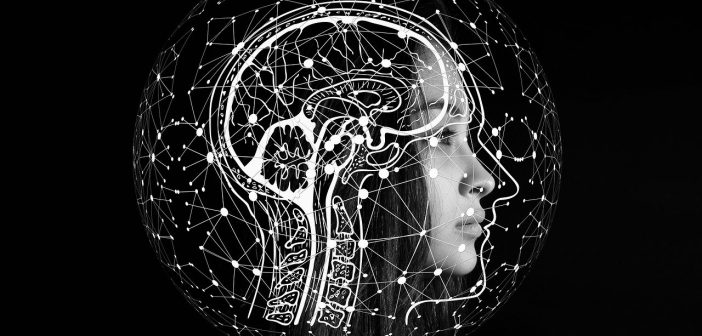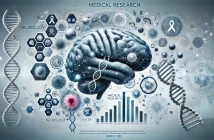Artificial intelligence (AI) is drastically reshaping workflows in various industries, saving people time and money. When applied to the medtech sector, AI can also save lives. Here are five ways that AI is disrupting the medtech industry to assist patients and health care providers alike.
1. Increasing Patient Compliance
When a patient doesn’t follow a doctor’s orders, they may be at an increased risk of complications, including hospital readmission, disease reoccurrence or prolonged symptoms. A physician can boost the likelihood of compliance to some extent by providing a person with detailed home care instructions and contacting the person later to find out if they encountered any difficulties with the instructions.
However, evidence also suggests that AI could also play a major role in encouraging patients to behave according to a physician’s instructions. In a study of stroke patients who were prescribed anticoagulant medication, an AI monitoring system raised adherence by as much as 67%.
A company called AiCure also wants to rely on artificial intelligence to improve the chances of a person following instructions during a clinical trial and participating for the duration of the study. A Nov 2019 round of funding brought the startup’s total amount raised to nearly $52 million.
AiCure’s platform — which the company says works for both clinical trials and prescribed treatment programs — applies AI to a patient care assistant that collects audio and video data from each user. Then, a professional who’s leading a clinical could find the deliberate non-participants, or health care providers could assess how well a patient sticks to a care plan.
2. Enhancing Telehealth Capabilities
Perhaps one of the most helpful things about the telehealth industry is that it improves access to care. A person may live in a rural area and be 45 minutes away from the nearest medical clinic. Or, perhaps they don’t have a car, and the public bus routes servicing their area are not sufficient to meet their health care needs. In situations like those and many others, a telehealth app allows a patient to see a doctor via a smartphone or computer.
Some experts believe the combination of telehealth and AI could increase human potential by giving doctors more information that they can use to get to the bottom of a telehealth patient’s ailments. But, telehealth platforms are not appropriate in every situation. Some people have health issues that require physical intervention from an expert.
Babylon Health used AI to create a database that helps a person assess their symptoms. People can interact with a chatbot to describe their symptoms and the associated severity. Then, the results they get may determine that they need to go to an emergency room right away to address an urgent situation or otherwise seek in-person care.
The telemedicine service is filling the gap for people who don’t have family doctors and usually visit walk-in clinics to have their health needs met, too. The app also streamlines getting prescriptions for the first time or having one renewed. Then, a patient can have it filled at their pharmacy of choice. Plus, because the AI component of the Babylon Health platform starts creating a person’s health records, a doctor can get to the heart of what’s ailing a person during an appointment.
Also read: 4 AI startups in healthcare that are leading the way
3. Speeding the Timeframe for Successful Diagnoses
One of the most frustrating things for people who aren’t feeling well is not knowing what’s wrong. Often, even the most skilled, experienced doctors make mistakes with their diagnoses or admit they’re stumped and need to perform more tests or get a consultation from a specialist. How could AI help in these situations? Usage might include diagnostic tools for health care companies, including hospitals.
At New York’s NYU Langone Health, a researcher came up with an AI tool that automatically diagnoses two of the most common types of lung cancer with a 97% accuracy rate — better than most pathologists. The system even taught itself to recognize genetic mutations associated with lung cancer by analyzing pathology lab images. That process typically takes weeks and requires costly genetic tests.
Other AI-based applications for improved diagnostics include spotting cases of post-traumatic stress disorder in a person’s voice recording or finding the signs of a stroke substantially faster than humans can alone. AI does not take away the need for human expertise, but it assists physicians by knowing how to screen for things that a doctor might miss or can’t see.
Some of the options for using AI to diagnose are still being tweaked in labs and not ready for widespread use. Still, the preliminary results are impressive and might soon permanently change the steps physicians go through while evaluating a patient.
4. Improving the Prediction and Management of Chronic Conditions
Being diagnosed with a chronic illness can drastically affect a person for the rest of their life. But, knowing things like how to manage the disease and how fast it’s likely to progress can improve a patient’s quality of life. Numerous examples of using AI to achieve those feats are underway.
In one example, researchers built a machine learning model that predicted the progression of diabetic kidney diseases. It could predict the likelihood of progression with 71% accuracy. It doctors know which factors are most probable for worsening a condition or how soon that downward trend could happen, they may be able to intervene in ways that keep patients healthier for longer and give them new tools for chronic disease management.
Some health gadgets are devices that people use at home. They automatically transfer data to a person’s physician, helping that providerk now how a person is doing between appointments. Also, Catalia Health has a robot called Mabu that incorporates AI to help patients feel more empowered to exert control over their conditions and symptoms when possible.
The robot uses conversational dialogue to provide medication reminders, give health tips and inform people about their conditions, all while sending health data to patients’ physicians. So far, some of the patients to use the product were those with rheumatoid arthritis and heart failure. Depending on how a person answers Mabu’s questions, the bot might recommend that they call their doctor or say that it’ll check in with the user later.
Also read: 5 real-world examples of AI in healthcare
5. Accelerating Drug Discovery Methods
The progress made in the health care sector regarding pharmaceutical drugs is undoubtedly amazing. However, the pace at which it happens is often upsetting to people who are waiting on new medicines to become commercially available while enduring situations where the product may prove life-saving.
Also, many individuals who don’t have health care backgrounds often don’t realize all the stages a new drug goes through. For example, researchers have to figure out which formulations of a drug treat particular symptoms most effectively. Also, years may pass before a medication reaches a human trial phase. The availability of healthcare consultants is helping startups and researchers access scientific expertise to improve innovation.
Oxford University researchers, along with Evotec, a drug discovery company, and Sensyne Health, a clinical AI company, are working together on a project that aims to help drug discoveries happen faster than before. One of the approaches taken during the so-called LAB10X initiative will be to use AI to analyze anonymized patient data sets.
The AI will also operate with a Quality Management System (QMS) that assists with selecting drug development projects that have the most potential for commercial viability. It’s too early to say for sure what the outcomes of these efforts may be, but the fact that scientists are using AI in this way could be life-changing for patients whose ailments are not responding well to drugs already on the market.
AI Takes Medtech to Greater Heights
Throughout the history of health care, there are examples of technologies aiding doctors and helping patients feel better or stay healthy. AI is another one to add to the list, but something that makes it stand out is the broad range of possible applications. The ones covered here offer a glimpse of what AI can, but there are certainly even more ways to use it — some of which are still undiscovered.
Developing a AI-based medical device? Get help from medical writers, medical device consultants, regulatory experts and more on Kolabtree.







